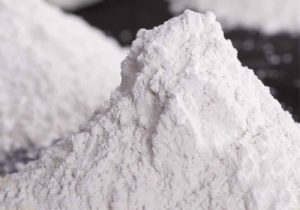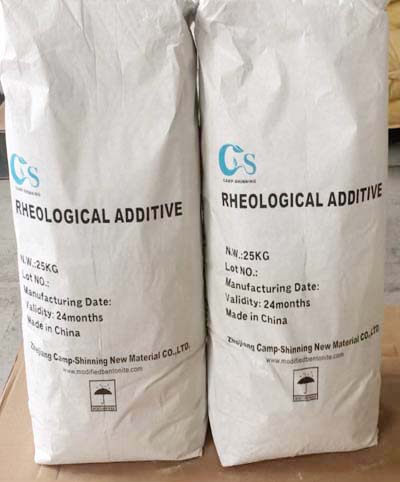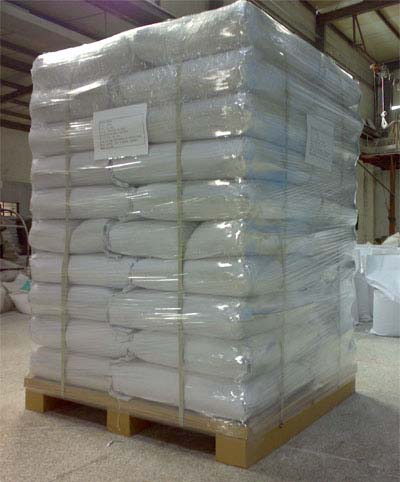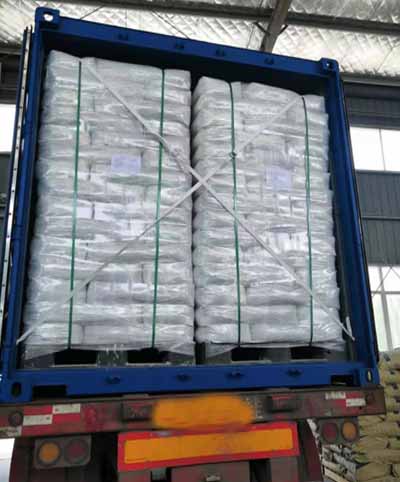
CP-992 Organophilic clay
CP-992 Organophilic Clay, the wet process improved viscosifier and gelling agent . It is a rapidly dispersing.
In order to provide users with high-quality organic bentonite, we have conducted rigorous testing and data preservation to ensure that you meet the application needs of different industrial fields.

Organoclay Supplier / Manufacturer :
Internet address: https://www.rheologymodifiers.com/
Email address: [email protected]
Whatsapp / Wechat: +86-13185071071
Organophilic Clay Supplier / Manufacturer :

CP-992 Organophilic Clay, the wet process improved viscosifier and gelling agent . It is a rapidly dispersing.

CP-982 Organophilic Clay is an amine treated bentonite with a moderate temperature performance.

CP-150 Organophilic Clay is a self-activating organoclay that disperses easily and performs well in diesel, low aromatic mineral oil, modified vegetable oil, and synthetic base fluid formulations.

CP-10 organoclay is a rheological additive made of organoclay. It is used in non-polar to moderately polar aliphatic and other solvent systems

CP-MPZ organoclays is an modified bentonite that is used in solvent and resin systems ranging from non-polar to highly polar.

The CP-MPS rheology modifier is a type of organo clay rheological additive that is used in solvent and resin systems ranging from non-polar to high polarity.




CP-EW Organoclay for Water Based paint. It is primarily employed in water borne paint systems,such as latex paint. So it is a good water based additive in paints,coatings,grease etc.

CP-EWS Modified bentonite It is employed in a water-borne coatings system. CP-EWS organoclay outperforms CP-EW in terms of thixotropy, transparence, and dispersion.

CP-WBS Rheology Modifier is rheological modified bentonite. It is mostly employed in water-borne systems.
Organoclay | Organophilic Clay CP-2 also named amine treated Bentonite.
In diesel oil based fluids,organophilic clay viscosifier CP-2 are used to increase carrying capacity and suspension properties, providing support for weight materials and improved cutting removal. Organophilic bentonite also aids in filter-cake formation and filtration control.
Properties
Composition Organically modified bentonite clay
Physical appearance Off white to tan free-flowing powder
Moisture content (105℃,2hr) ≤4%
Particle size (<76μm or 200mesh) ≥95%
Specific Gravity 1.6-1.8
Advantages
Effective viscosifier and gellant
Aids control of fluid loss to the formation
Increases emulsion stability
Improves cuttings carrying and hole cleaning capacity
Suspends weighting materials and other solids
Confers temperature stability to the fluid
Application
Base oil:
Diesel Oils
Crude Oils
Mineral Oils
Synthetic Oil
Viscosifying drilling Fluids:
Oil based drilling fluids
Invert emulsion fluids
Workover fluids
Completion fluids
Casing packs
Packer fluids
Spotting fluids
Package
Organoclay | Organophilic Clay CP-2 is packed in 50lb(22.7kg) or 25kg/bag or customized,multi-wall paper sacks or Kraft paper bag with PE liner or customized.
Storage
CP-2 Store in a dry, well-ventilated area with temperature of 0℃-30℃. Keep container closed. The quality guarantee period is 24 months.
Notice
The information on use is based on data which are believed reliable, but any recommendation or suggestion made is without guarantee or warranty, since the conditions of use are outside our control. All products are sold on the conditions that purchasers shall make their own tests to determine the suitability of such products for their purpose and that all risks are assumed by user. We disclaim any responsibility for damages resulting from careless or improper handling or use. Nothing herein is to be taken as permission, inducement or recommendation to practice any patented invention without a license.
Internet address: https://www.rheologicaladditive.com/ and email address: [email protected]
Whatsapp / Wechat: +86-13185071071
organic clay powder
The testing of organic bentonite affects the final result when applied. So the testing of its physical, chemical and performance characteristics will be very important. 1. Physical properties testing Appearance: Observe the color and form of the organobentonite. Usually the appearance of organic bentonite is white powder. Odor: Test the odor characteristics of organic bentonite to detect possible odor or contamination. Particle Size Analysis: Measurement of the size range of bentonite particles by laser particle size analyzer or sieving to understand the particle distribution. Specific Surface Area: Determination of specific surface area using the BET (Brunauer-Emmett-Teller) method. Wettability: Bentonite is tested for its ability to interact with water, including water absorption and dispersion. As well as water content, the standard range for moisture is required to be below 3.5%. 2. Chemical property testing Elemental analysis: analysis of the main elements and ion content of organic bentonite. Cation exchange capacity: Determination of cation exchange capacity in bentonite to understand its ion exchange capacity. To test its stability and environmental impact. 3. Performance test Dispersibility: to test its dispersibility and stability in organic solvents. Thixotropy: to test its thixotropic behavior by rheometer. Thickening: Determine the thickening effect in specific solvents. Heat resistance: Heat resistance of the organobentonite is analyzed and evaluated by thermogravimetric analysis. Rheology: The rheological properties of organobentonite in formulations are analyzed and tested. Test the stability and performance changes of bentonite under high temperature conditions. 4. Environmental safety testing Heavy metal content: detect heavy metal pollutants, such as lead, cadmium, mercury, etc.. Toxicity test: conduct biological toxicity test, such as acute toxicity test, ecotoxicity test. Impurity testing: testing of organic bentonite internal grit, impurities. Specific testing steps: 1. Sample preparation: ensure that the sample is dry and free of impurities, in accordance with standard methods for sampling. 2. Physical properties test: the appearance, particle size, specific surface area and other physical properties of the test. 3. Chemical property test: Elemental analysis, CEC, organic carbon content and other chemical properties. 4. Performance test: according to the application field, conduct the performance test of dispersibility, thixotropy, thickening and so on. 5. Environmental safety testing: heavy metal content and toxicity testing to ensure that the products are environmentally friendly. 6. Data analysis and report preparation: analyze and process the testing data, prepare the testing report, and give the corresponding conclusions and recommendations. 7. Testing standards: testing should follow the relevant national and industry standards . Precautions: The testing process should ensure the calibration of the instrument and the correct operation. need to be verified against standard samples or samples of known performance. Make strict and correct records of each data. Save the experimental data.